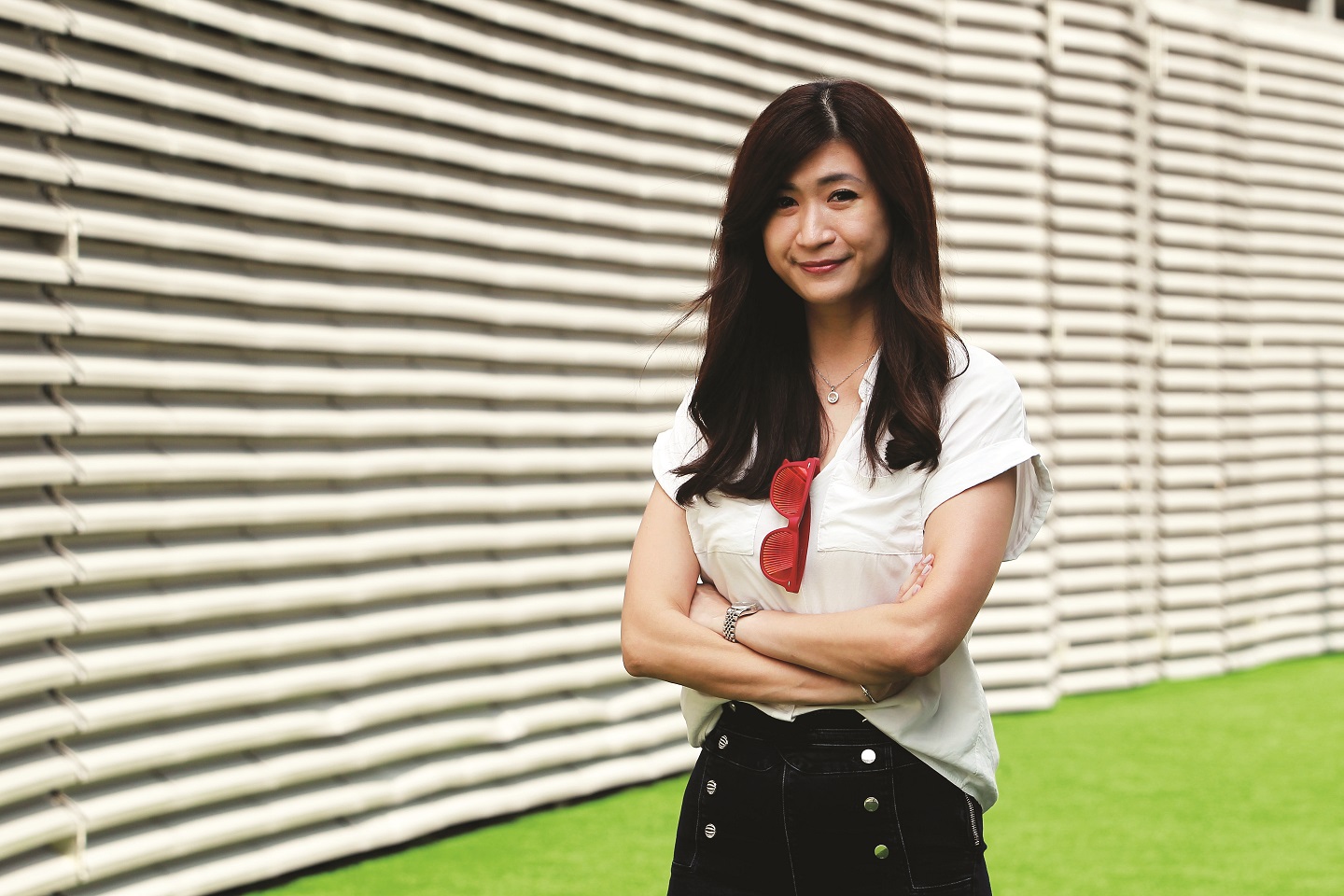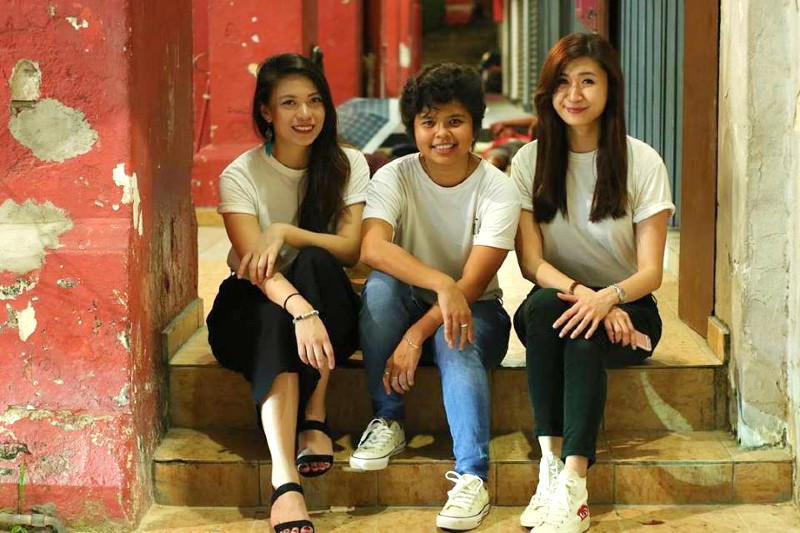
SESO founder and CEO, Tan Shi Wen (Photo: Shahrin Yahya/The Edge)
SESO is not your typical soup kitchen. Every Saturday, volunteers get together at a spot in Jalan Tun HS Lee, commonly referred to as the Bangkok Bank area within the soup kitchen community, a popular location to distribute food to the homeless. Tables and chairs are promptly arranged before the beneficiaries begin to turn up and volunteers start taking orders, asking whether they would prefer coffee or tea with their three-course meal. It operates like a restaurant and people from the streets who come here can enjoy a warm meal comfortably, in a dignified and welcoming environment. It is an approach SESO founder and CEO Tan Shi Wen, marketing director Chee Si Ying and operations director Nadia Sarah Anne Ismail Fadzil feel strongly about.
For Tan, the desire to work with the homeless community first crossed her mind when she was reading law in the UK. “Like most students, I remember throwing house parties and like all house parties, the food wasn’t always finished.” Once, Tan saw a homeless man scavenging for food in the garbage bin where she had discarded the leftovers from the night before.

“It was winter but he was not wearing a jacket. I later noticed that his dog was covered in one, presumably his. When he found food he fed his dog first,” she vividly recollects. Something stirred within her that day and she knew she had to take action.
From then on, she got involved with various non-governmental organisations and volunteered at dialysis centres, orphanages, old folks’ homes and a Down syndrome school. It was not until she came back to Malaysia eight years ago that she began to actively pursue the idea for SESO.
But before that, Tan volunteered with a number of food-related organisations as she believed that by joining an existing NGO, it would help pool resources instead of diluting them. Unable to find an organisation that fit the particular concerns she wished to champion, the 31-year-old corporate lawyer and partner at Skrine & Co decided to start her own, leading to the birth of SESO. While the non-profit modus operandi sets it apart from that of others with similar objectives, it is playing a part in an ecosystem and Tan acknowledges that collaboration between organisations is vital.
SESO’s main goal is to reduce food waste and nourish communities using surplus food. This is done by collecting food that would otherwise go to waste from some Jaya Grocer, Village Grocer and AEON outlets on an ad hoc basis. On whether it was challenging to get the grocers on board as partners, Tan explains that it is because “bigger grocery stores have this image to maintain. Freshness is the most important thing, so it is very difficult for them to donate all the food that they would rather throw away.”
Then, the chefs at partner restaurant, Grain, use those ingredients to prepare an appetiser, main dish and dessert for 100 people. “The menu depends on what we collected that day. There’s always one protein-based dish and when it comes to meat, we can’t use surplus; we buy fresh, using funds from sponsors,” says Tan.
Loosely based on UK’s Food Cycle, which serves community meals, Tan describes the food distribution sessions as a “pop-up mamak”, offering not only sustenance but also company and conversation during meal time. “Food Cycle not only caters for the homeless but also old people, so we try to do that as well. We hope that people who are lonely or live in isolation will come and share a meal with us,” Tan says. Bearing this in mind, SESO serves food to people who come to them on a no-questions-asked basis.
Over its one year of operations, she has already noticed a positive change in reception and continues to build on this relationship of trust with street people. Ideally, she would like to have food for everyone but sometimes, the supplies run out and people have to be turned away. Partnerships can sometimes mean more food is available as they discovered during one food distribution session with St Regis Hotel, which served 250 people.
“This year, we have moved our focus from only feeding to being campaign-based. At the end of the day, we want to raise awareness of food waste. We believe food waste does not only stop at feeding. Every single person can make a difference through our habits, from buying to eating, storing and throwing,” says Tan.
At the student level, SESO’s Unleash Captain Zero campaign saw participation from Taylor’s College, Sunway University, Multimedia University, Perdana University and Reliance College. The winning team’s video of their efforts in raising awareness and combating food waste will be showcased at the movie premiere of Avengers: Endgame in Starling Mall, Petaling Jaya, on April 25. At the event, members of the underprivileged community that SESO serves through its food programme will be treated to a night at the movies. The premiere, which is open to the public, coincides with the launch of its food-sharing platform where restaurants in the mall may post discounts and promotions near closing time with the aim of reducing food waste.
Between this and their full-time jobs, the three women have their hands full but are constantly in search of ways and means to tackle food waste and poverty, and hopes to expand the operations to other states.
“We have to think of a bigger platform ... the food is too much to only feed the homeless,” Tan says, stressing the seriousness of the food waste problem.
This article first appeared on Apr 8, 2019 in The Edge Malaysia.


